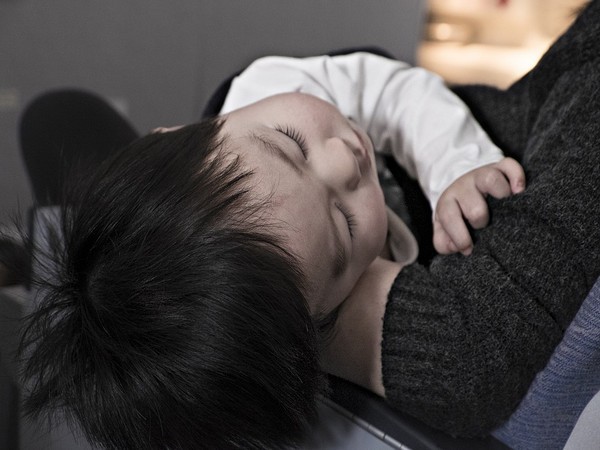Washington D.C. [USA], Nov 15 (ANI): Parents often expect their baby sleep through the night by around six months of age. They often receive messages from pediatricians and others about the importance of early sleep consolidation. However, a new study has found that a large percentage of healthy babies don’t reach that milestone by six months of age, or even at a year old and parents shouldn’t take stress about it.
The study appeared in the Journal of Pediatrics. The McGill-led research team also examined whether infants who didn’t sleep for six or eight consecutive hours were more likely to have problems with psychomotor and mental development, and found no association.
The researchers also found no correlation between infants waking up at night and their mothers’ postnatal mood.
The researchers analyzed information from the Maternal Adversity, Vulnerability, and Neurodevelopment longitudinal birth cohort study, which recruited participants from obstetric clinics in Montreal, Quebec and Hamilton, Ontario.
Sleeping through the night was defined as either six or eight hours of sleep without waking up. Sleep measures were available for 388 infants at six months old, and 369 infants at a year old.
At six months of age, according to mothers’ reports, 38 percent of typically developing infants were not yet sleeping at least six consecutive hours at night; more than half (57 percent) weren’t sleeping eight hours. At twelve months old, 28 percent of infants weren’t yet sleeping six hours straight at night, and 43 percent weren’t staying asleep for eight hours.
Researchers saw a difference between sleep patterns of boys and girls. At six months old, a slightly higher percentage of girls than boys slept for eight hours straight. (48 percent vs. 39 percent).
Researchers also found no correlation between infants waking up at night and their mothers’ postnatal mood. But they did discover that babies who didn’t sleep for six or eight consecutive hours had a significantly higher rate of breastfeeding, which offers many benefits for babies and mothers.
Sleeping through the night somewhere between six to twelve months is generally considered the “gold standard” in Western nations. Indeed, behavioural sleep training is popular among parents and professionals to encourage children to sleep.
“Our findings suggest parents might benefit from more education about the normal development of and wide variability in infants’ sleep-wake cycles instead of only focusing on methods and interventions, especially for those who feel stressed about methods such as delayed response to crying,” said lead researcher Marie-Helene Pennestri.
“Maternal sleep deprivation is often invoked to support the introduction of early behavioural interventions, but it may be that mothers’ expectations about being awakened at night along with the total number of hours they sleep over the course of a day are better predictors of maternal well-being. It is something that will need to be considered in future studies,” added Pennestri.
Pennestri hoped that the results of the study would calm and allay some parental worries. [source_without_link]ANI[/source_without_link]

